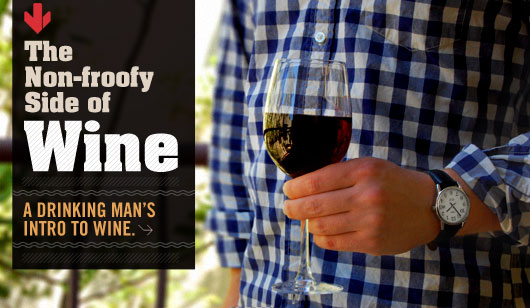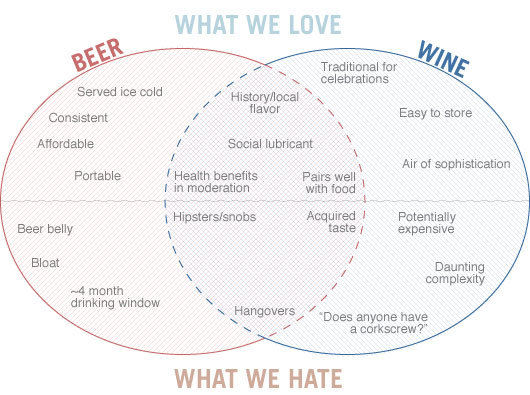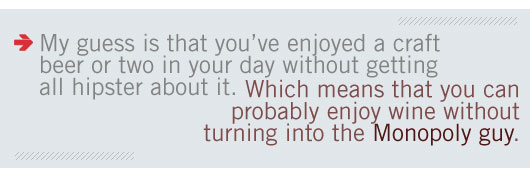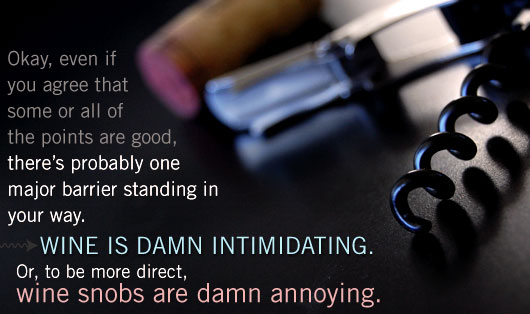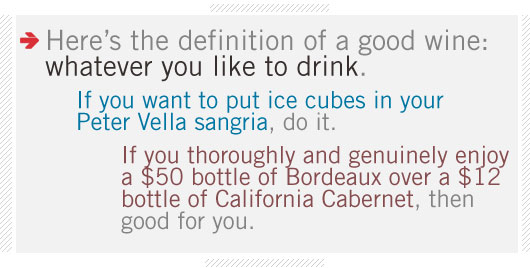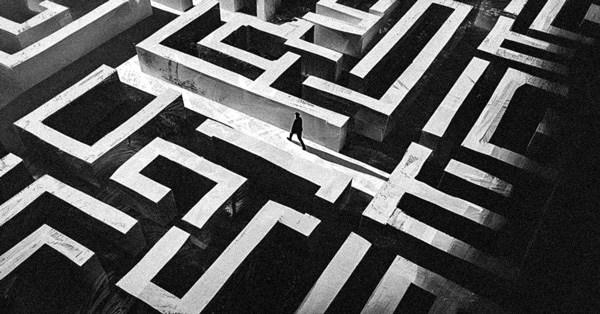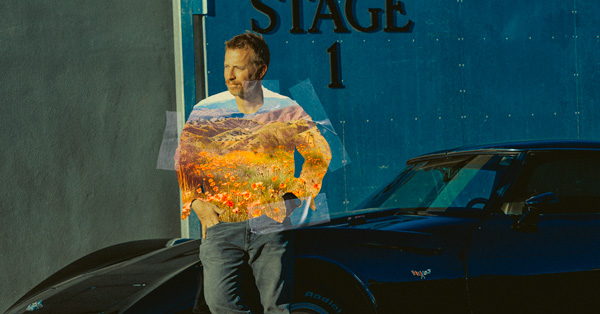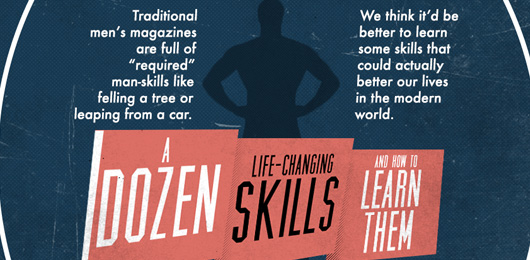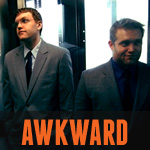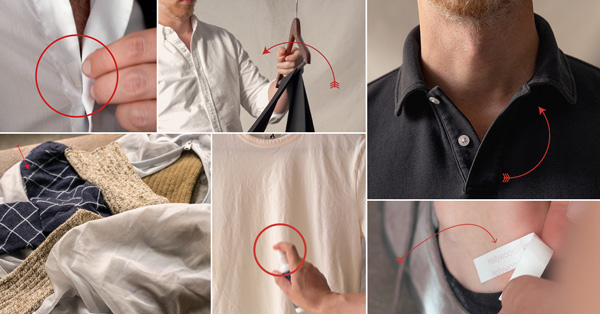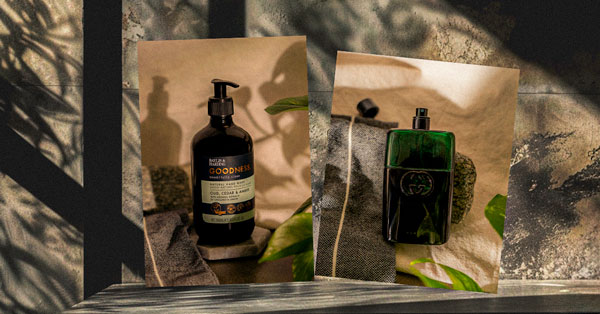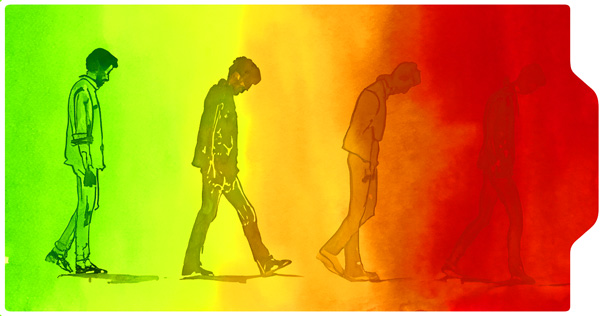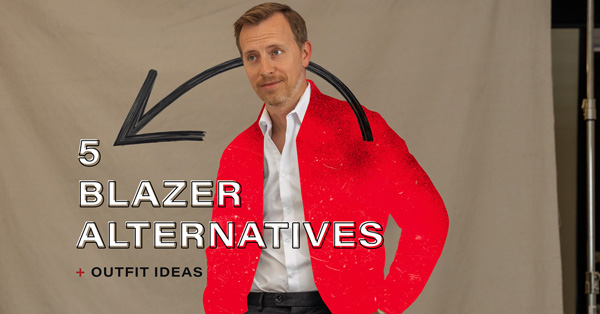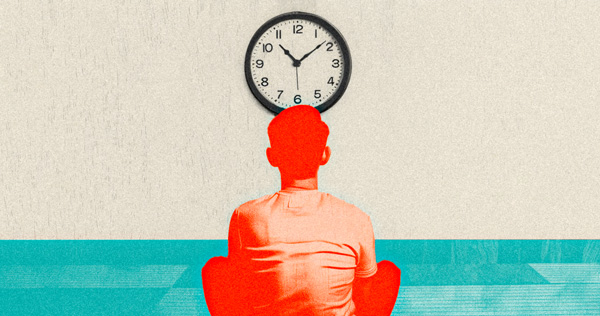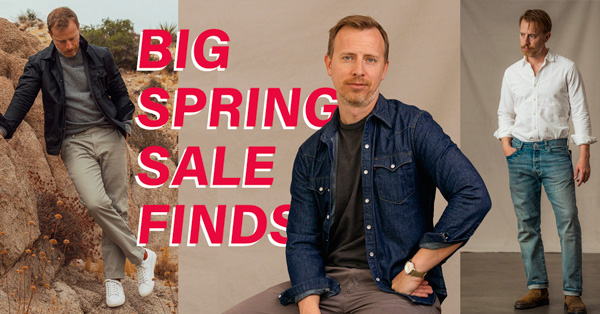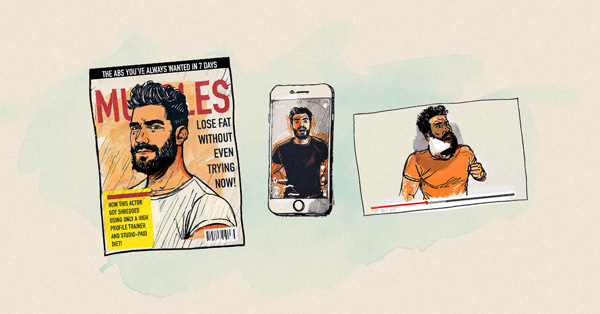A Drinking Man's Intro to Wine
- The Non-froofy Side of Wine: A Drinking Man's Intro to Wine
- Learn About Wine: An Easy Explanation of Wine Types
- How to Order Wine on a Date
- How to Serve Wine
- A Visual Guide to the Common Glasses of Wine, Spirits, Beer and Cocktails
- A Guide to Wine Vintages
- The 10 Minute Guide to Port
- Wine for Beginners: An EASY Explanation of Different Wine Types
Ever since I came of drinking age started drinking, I’ve been a beer drinker. But for the rest of 2011, I’ve decided to be a wine drinker. Why? Because I’m ready for the experience. I’ve been drinking for about a decade now and I think my tastes have grown up. And it’s possible that the premises upon which I became a beer drinker in the first place are a bit shaky. My first beers were cans of Keystone Ice, smuggled into some friend’s mom’s basement and chugged still hot from their hiding place in my car. We chose Ice because of its higher alcohol content, not for its taste, which it gets primarily from the aluminum it’s housed in. Beer, for much of my drinking life, has been a means to an end.
More recently, I’ve been enjoying my beer, and not just the drunkenness it produces. While my default beer is Yuengling (brewed in my home state of Pennsylvania), I make it a point to order whatever craft, seasonal or local brew is on tap. I’ve been to a few beer tastings and festivals, but overall, I’ve only been moderately adventurous. As a result, I’ve come to learn what I like in a beer (freshness tops the list for me), and can usually predict from a bartender’s description of a beer whether I’ll enjoy a new beer or not.
I don’t have this experience with wine. I do drink wine when the occasion calls for it, e.g. for celebrations, weddings, fine dining. For the most part, I enjoy most glasses of wine that I taste, but I feel like I’m missing out on something. Wine, to me, is an under-appreciated lyrical poem. On the surface, I can delight in its meter and rhyme. But I can sense that I’m failing to pick up on the subtext. And that’s a shame, especially since I’ve very likely had some very nice glasses of wine in my life without even knowing it.
So, for the next few months, I’ll be embarking on a personal adventure to expand my horizons and deepen my appreciation for wine. I’m not saying goodbye to beer completely, and I don’t think you should either. Why abandon something you love? But I think I have some serious catching up to do in terms of enjoying wine, versus simply imbibing it for its alcoholic content.
In later articles, I’ll be sharing with you what I’ve learned about the different types of wine, how to taste wines, how to decipher those arcane wine labels and how to select wine at restaurants or at the store.
But to kick of this series, let’s talk about the transition from being primarily a beer drinker to becoming a wine drinker. In my opinion, it’s pretty smooth.
What You Love About Beer
Beer is your old college buddy. You have a storied past, many fond memories and a few experiences that you maybe can’t remember so clearly. You have a special connection with the beer you buy by the case to this day. And when you take a swig, your subconscious reaction is similar to when a blind taste tester said that Coca-Cola “tastes like my childhood.” But on a pragmatic level, beer has some nice advantages:
Consistency. Walk into any bar in the country and order a pint of Sam Adams and you know what you’re going to get. Do the same and order a glass of chardonnay and it’s a total crap shoot. With beer, at least, you never have to ask to see the bottle before having a glass poured.
Affordability. Drinking whatever’s on tap is almost always the most economical way to go, and since you know what you’re getting with beer, it’s a safe one, too. The chance that you’ll enjoy the house wine is somewhat slimmer, meaning you could end up shelling out for a handpicked bottle.
Portability. I can drink a beer while floating down a river in an inner tube. The same can’t be said for a corked bottle of wine or a Boston Sour.
Chilling out. Nothing beats a cold one on a hot summer day. Nothing.
With all the general things being said about beer, there’s also a rich and diverse universe of craft beers to appreciate—and you don’t even have to travel to Europe to explore it. There’s equal potential to be snobby about craft beer as there is for fine wine. My guess is that you’ve enjoyed a craft beer or two in your day without getting all hipster about it. Which means that you can probably enjoy wine without turning into the Monopoly guy.
What You Will Learn to Love About Wine
Many of the qualities that are lovable about beer overlap with what wine has to offer. It’s a fine social lubricant, it has a depth of local flavor and historical significance to plumb, and it can take the flavors of your food to a whole new dimension. As you know, there have been quite a few studies linking a glass or two of wine each day to lower stress and a healthier heart, though the jury is still out on whether or not the health benefits are shared by beer and other alcoholic drinks. Some scientists believe it has to do with the antioxidants in red wine, but personally, I think the x factor is the daily ritual of unwinding at the end of the day, be it with a frosty brew, a dark red, or a spot of green tea.
Since we talked about some of the pros of beer, I figured it’s worthwhile to talk about some of the pluses of wine:
Rewarding complexity. In a way, each glass of wine you drink is better than the last. That’s because as you learn more about wine and develop a taste for the different types of wine, you’ll learn how to appreciate the complexity that’s been there all along.
It’s a bit like following sports. In your lifetime, you will probably watch hundreds or thousands of football, baseball or basketball games. All the while, the game stays the same, for the most part. But I’d wager that the way you watch a football game is much, much different from the way a non-sports fan does. They only watch the scoreboard, but you pay attention to the nuances of the game: the head games that coaches play with each other, the athleticism of the players, the history of the franchises, etc.
It’s similar with wine, and like I said, if you’ve already been enjoying craft beers or fine whiskeys, you’ll know what I’m talking about. Everyone starts off being able to tell the difference between a red and white. And then, you’ll start to discern between a Syrah and a Merlot. Meanwhile, you’ll start to learn a bit about which foods pair well with your wine. You’ll begin narrowing down which types of wines you enjoy and why until you discover your favorites.
Better for your waistline. A 4 oz. glass of red or white wine will almost always be under 100 calories, depending on the grape variety. Port, for example, can push 195 per glass while white zinfandel can be as little as 80 calories per glass. On the other hand, a 12 oz. bottle of Yuengling Lager is 128 calories. A bottle of Golden Monkey is 274 calories. True, you can go for an ultralight beer like the much ballyhooed MGD 64, but let’s be serious—if we’re talking flavor-to-calories ratio, it’s an absolute landslide in favor of wine.
It’s also important to consider that wine is made out of grapes, while beer is made out of hops and grain. Why does that matter? Carbs. A regular bottle of beer averages about 13 grams of carbs. Ale has less (about 7 grams) and stout has more (20 grams). Dry white and red white wine have about 3 to 5 grams of carbs per glass. Generally, the sweeter the wine, the more carbs. Dessert wines, like sherry and port, will have 12 to 14 grams of carbs.
Also, while we’re comparing, distilled liquors, like whiskey, vodka and gin, have about 100 calories per shot and zero carbs. But the mixers will get you. A can of tonic water can have upwards of 32 grams of carbs in it. And if you’re slamming rum and Cokes all night, then fuggedaboutit.
A different experience. You may or may not be bored with beer, but exploring new territory is always worthwhile. Drinking wine will be an undoubtedly different experience. It may or may not be lifechangingly profound for you, but it certainly will mix things up a bit.
There are some that argue that certain kinds of libations give them a different kind of buzz. There’s light debate over the difference between beer buzz vs. wine buzz vs. liquor buzz, but on a chemical level, it’s all the same active ingredient: ethanol. Drunk is drunk, as far as your neurochemistry is concerned.
However, there is some merit to the wine drunk vs. beer drunk discussion. Some people, for instance, tolerate the impurities and other components of wine/beer differently, which matters when it comes to hangovers and other factors of feeling physically good or not. But I think the real differentiators between the experiences of those who are drinking wine and those who are drinking beer has to do with the mindset.
Wine drinking, generally, carries an air of sophistication. Even if you’re not trying to be snooty about it, if you’re drinking wine in order to enjoy its complexity, you’re going to prime yourself for a bit more concentration, a bit more analysis and a bit more awareness of what you’re experiencing. This is probably different from how you drink your favorite beer, e.g. (a) as a way to chill out in front of the TV and (b) as a way to get crazy at a club or tailgate party. I think this is why some people tend to feel that a wine drunk is more mellow, lowering inhibitions in a way that opens and focuses the mind.
Aside from that theory, wine bars, and places where we consume wine, tend to be more sophisticated and mellow compared to dance clubs, stadium parking lots and frat houses. It’s not necessarily better than those settings, it’s just a change of pace. Wine tastings are great for meeting new people or taking a date.
Discovering the Non-froofy Side of Wine
Okay, even if you agree that some or all of the points are good, there’s probably one major barrier standing in your way. Wine is damn intimidating. Or, to be more direct, wine snobs are damn annoying. We see them slurping and swishing, shoving their noses into their glass, adopting fake French accents and using infuriatingly bullshit wine terms like “notes of spicy earth” or “unctuous layers of fruit.” (Can someone please tell me how a wine can taste “confident” or “serious?”)
Even though the cultures and peoples of the world can’t agree on tax policy, religion, gay marriage or whether or not 2Pac is alive, I think we’ve all reached the consensus that wine snobs are the worst. They loom as the gatekeepers to the world of wine, harsh critics of everything, especially you and your plebeian ignorance. Even if you disdain them twice as much as they disdain you, for some reason, they still manage to make you feel like a doofus.
There’s a really easy way to get over your fear of being condescended by wine snobbery. Tell them to f@#$ off. Seriously. Here’s the definition of a good wine: whatever you like to drink. If you want to put ice cubes in your Peter Vella sangria, do it. If you thoroughly and genuinely enjoy a $50 bottle of Bordeaux over a $12 bottle of California Cabernet, then good for you.
That’s not to say that it’s not worthwhile to learn more about wine. As I mentioned above, the more you learn about what you like, the more you will enjoy drinking wine. But lacking an encyclopedic knowledge of each vintage, grape variety, region and winemaker won’t hinder your ability to enjoy being a wine drinker.
As we move forward in our drinking man’s introduction to wine, we’re going to learn what we need to about wine in order to find the wines that we like drinking the most. Along the way, we’ll learn a little history, some tips, guidelines and factoids and even some terminology. But acting like a d-bag is absolutely not a requirement for this endeavor.
So, settle in, buy a corkscrew and let’s discover your favorite wine.
Stay tuned, in two weeks we'll be presenting an easy guide to wine types.
A Drinking Man's Intro to Wine
- The Non-froofy Side of Wine: A Drinking Man's Intro to Wine
- Learn About Wine: An Easy Explanation of Wine Types
- How to Order Wine on a Date
- How to Serve Wine
- A Visual Guide to the Common Glasses of Wine, Spirits, Beer and Cocktails
- A Guide to Wine Vintages
- The 10 Minute Guide to Port
- Wine for Beginners: An EASY Explanation of Different Wine Types



